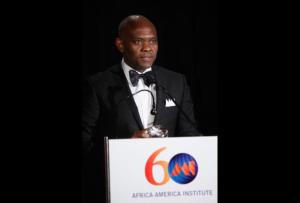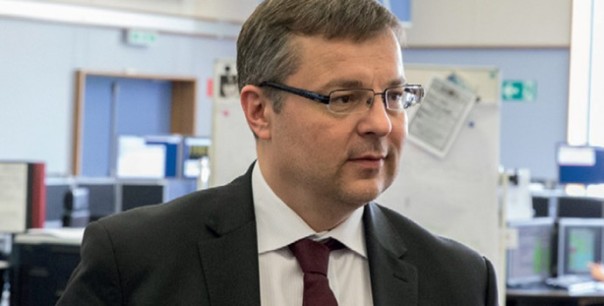
A beloved lion who usually roamed within the confines of an African conservation park is dead. An American hunter has been named by Zimbabwean officials as the killer of the animal. Many people are outraged.
The death of Cecil the lion also has some asking questions about the sizable role U.S. citizens play in the controversial sport of slaying wildlife for trophies.
“Americans are among the most bloodthirsty among citizens of the world when it comes to trophy hunting, in particular lions and elephants,“ said Jeff Flocken, North American regional director for the International Fund for Animal Welfare. “It’s a small group of privileged Americans. Eighty percent or more of Americans want to see endangered species protected."
A $55,000 hunt
Cecil, a well-known lion with a distinctive black mane, was reportedly killed July 1 by crossbow just outside Zimbabwe’s Hwange National Park.
According to news reports citing Zimbabwean authorities, Walter James Palmer, a dentist from Bloomington, Minn., paid about $55,000 for the hunt. Palmer has denied any wrongdoing, saying in a written statement that to his knowledge everything about his trip “was legal and properly handled and conducted."
In March, U.S. Fish and Wildlife Service Director Dan Ashe acknowledged that U.S. citizens make up “a disproportionately large share of foreign hunters who book trophy hunts in Africa.” Ashe noted that this activity provides the host countries with a way to manage their wildlife populations and support conservation efforts.
Laury Parramore, a spokeswoman with the Fish and Wildlife Service, told the Los Angeles Times on Tuesday that, though the agency does not keep track of the number of Americans who book trophy hunting trips in Africa, it does count those who apply for permits to import their trophies. That figure, however, was not readily available, Parramore said.
An undesirable trend
Wildlife conservationists see what they describe as an undesirable trend.According to data from the International Fund for Animal Welfare, the U.S. is the world’s largest importer of African lion parts for trophies and for commercial purposes. Between 1999 and 2008, U.S. citizens claimed 64% of the international market for lion parts. The data show that number has been increasing.
Flocken said the slaying of Cecil was particularly troubling because of the sharp decline in African lion populations, which have dropped nearly 60% in the last three decades. In addition, the killing of a dominant male in a pride, like Cecil, could result in the deaths of others in the group, Flocken said. Males from other prides who might be interested in the open leadership position created by Cecil's death could attack other males, cubs and protective females.
Charges in the case
Theo Bronkhorst, the professional hunter with Bushman Safaris, which guided Palmer's safari, and Honest Trymore Ndlovu, owner of Antoinette Farm, where Cecil was shot, are both facing criminal poaching charges. Cecil's killing was illegal because neither Bronkhorst or Ndlovu had permission to kill a lion, authorities said.
As part of conservation efforts, hunting licenses often restrict the type and quantity of animals that may be killed.
The Associated Press reported Tuesday that Bronkhorst and Ndlovu were expected to appear in court Wednesday and that authorities were searching for Palmer, who also faces poaching charges.
Parramore said the U.S. Fish and Wildlife Service was “looking into the facts” of the lion’s killing and was “working with the Zimbabwean government as requested.”
'Deep regret'
Palmer has since expressed “deep regret” that his actions led to the death of Cecil, who had been found skinned and beheaded, according to AP.
In Africa, where many leaders cling to power, Obama's joke about a third term had an edge "I had no idea that the lion I took was a known, local favorite, was collared and part of a study until the end of the hunt,” he said in the statement. “I relied on the expertise of my local professional guides to ensure a legal hunt.”
This has not quieted his critics, who took to social media with attacks, including condemnation of his dental practice on Twitter, Facebook and Yelp.
An online petition asking the American Dental Assn. to suspend Palmer had more than 1,400 signatures by Tuesday afternoon, and a petition demanding justice for Cecil had more than 166,000 signatures by late Tuesday.
Palmer’s hunting practices have come under scrutiny in the past. In 2008, he pleaded guilty to one count of making material false statements in relation to a poaching case in Wisconsin. He was sentenced to one year probation, a $2,938 fine and was forced to forfeit the black bear remains to the government.
 Sun City, South Africa - The recently launched African free trade area can succeed only if it is backed by good credit insurance that covers payment risk as well as political and country risk.
Sun City, South Africa - The recently launched African free trade area can succeed only if it is backed by good credit insurance that covers payment risk as well as political and country risk. IBM has invested a sum of USD 60 million over three years to develop the next generation of technical talent in Africa. As part of the initiative, IBM is expanding the Africa Technical Academy and the company’s Africa University Programme to over 20 African countries.
IBM has invested a sum of USD 60 million over three years to develop the next generation of technical talent in Africa. As part of the initiative, IBM is expanding the Africa Technical Academy and the company’s Africa University Programme to over 20 African countries. Barclays Africa Group Ltd. said talks to buy its parent company’s operations in Egypt and Zimbabwe have been accelerated following management changes at Barclays Plc.
Barclays Africa Group Ltd. said talks to buy its parent company’s operations in Egypt and Zimbabwe have been accelerated following management changes at Barclays Plc.







 President Paul Kagame yesterday thanked citizens of Kicukiro for their involvement in moving their neighborhood and country forward adding that the partnership between citizens and government has been key to developing Rwanda.The Head of State made the remarks after joining residents of Niboye Sector, Kicukiro District as they worked to revamp a feeder road network in the neighborhood as part of the monthly community service, Umuganda.
President Paul Kagame yesterday thanked citizens of Kicukiro for their involvement in moving their neighborhood and country forward adding that the partnership between citizens and government has been key to developing Rwanda.The Head of State made the remarks after joining residents of Niboye Sector, Kicukiro District as they worked to revamp a feeder road network in the neighborhood as part of the monthly community service, Umuganda..jpg) The chairpersons of Rwanda Patriotic Front (RPF) in all four provinces and the City of Kigali were retained by delegates in the party election that took place across the country yesterday.In City of Kigali, delegates retained mayor Fidele Ndayisaba as party chairperson, while Zulfat Mukarubega was elected as the new party’s vice chairperson, with Claudine Mukakagaba getting the delegates nod as secretary-general.
The chairpersons of Rwanda Patriotic Front (RPF) in all four provinces and the City of Kigali were retained by delegates in the party election that took place across the country yesterday.In City of Kigali, delegates retained mayor Fidele Ndayisaba as party chairperson, while Zulfat Mukarubega was elected as the new party’s vice chairperson, with Claudine Mukakagaba getting the delegates nod as secretary-general.




